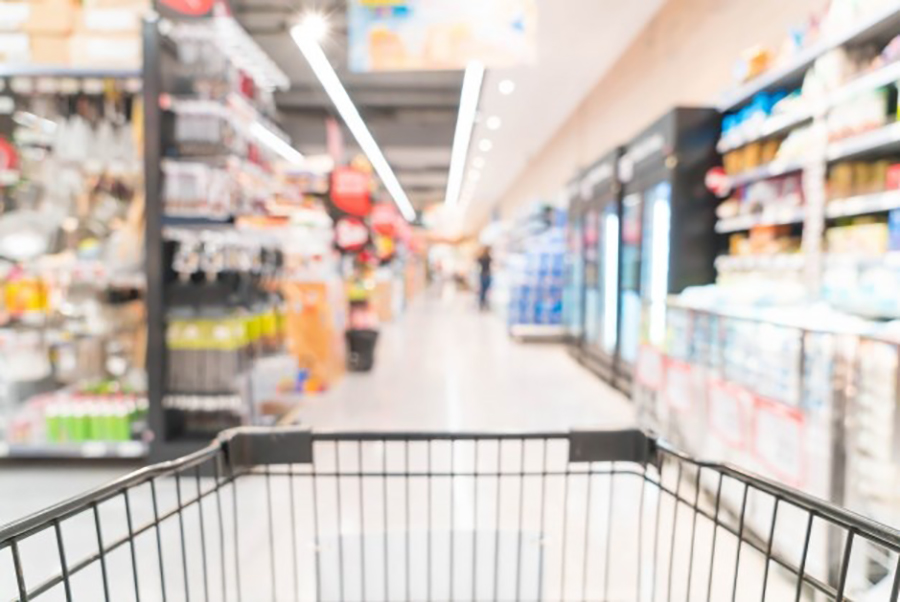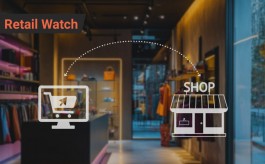Will these 4 key factors make a difference to Indian retail business in 2022?
By N Jayalakshmi | January 03, 2022
Here’s a look at some quick take-away’s from McKinsey’s key surveys of 2021 and what they mean for the Indian retail industry in 2022.

Another year has gone by and as a fresh new year unfolds before us,it becomes inevitable to look back, glean some learnings and apply them to the year ahead
If 2020 was labelled as something akin to an erasable year from our collective mental calendar, 2021 seemed even worse, especially the first half, with the second wave majorly impacting both economy and every day lives. And just when respite seemed hovering on the horizon, came fresh concerns regarding a new variant and a possible third wave. But life must go on and as we stand poised on another new beginning, it seems only right to pause, review, anticipate and plan ahead, despite the looming uncertainties.
McKinsey recently collated the findings of their most important surveys of 2021. These cut across industries but they hold a lot of relevance for retail organisations and businesses. Here a look:
1. Mental resilience and strong leadership: If there’s one overlooked aspect in public and private life today, then it’s mental and emotional health, which has gained even more criticality post pandemic. According to WHO estimates, depression and anxiety have a significant economic impact; the estimated cost to the global economy is US$ 1 trillion per year in lost productivity and globally, an estimated 264 million people suffer from depression, one of the leading causes of disability, with many of these people also suffering from symptoms of anxiety. It’s imperative that organisations create a culture where workers and employees fee comfortable enough to seek help for their mental and emotional issues. In consumer facing industries like retail , which are also more susceptible to the pandemic impact, employees’ mental and emotional resilience plays a huge role and this necessitates a strong and empathetic leadership. A McKinsey Global Survey conducted during the pandemic confirms that only a handful of business leaders often demonstrate the positive behaviors that can instill this climate, termed psychological safety, in their workforce.
2. Building a conducive space for re-skilling: The latest Mckinsey Global Survey on reskilling also shows the urgency of addressing skill gaps across industries. Most respondents reportedly admitted that skill building (more than hiring, contracting, or redeploying employees) is the best way to close those gaps and that they have doubled down on their efforts to reskill or upskill employees since the pandemic began. The report says, “The results point to a shift in the most important skills to develop, which tend to be social and emotional in nature: for example, empathy, leadership, and adaptability.” Again, these are very relevant and critical skill sets in the retail context, and organisations will need to deploy resources and strategies towards relevant and timely re-skilling programmes for employees.
3. Scaling up the digital/ tech drive : This is a no-brainer. If there’s one crucial thing that the pandemic has taught us then it is that most activities and businesses can go on as usual on a virtual interface, with some smart use of technologies. The Mckinsey survey confirms that the future will belong to companies that “put technology at the center of their outlook, capabilities, and leadership mandate.” The survey shows that many companies devoted more resources to both their digital and technology capabilities during the pandemic, even as they scaled down on other aspects of their business. In retail the contribution of omnichannel has very obviously grown in the last coupe of years and the investments in technology now cut across areas - from back end applications and supply chain to inventory management, logistics, customer experience and organisational operations. More interestingly , the latest McKinsey Global Survey on technology and business suggests that even in the crisis’s earlier days, respondents were reporting progress on their integration of technology and business—and that these efforts were creating tangible business value across key measures, including new revenue streams and lower costs.
1. Agility - No second thoughts : Again, an obvious imperative in the post pandemic world. The number of brands - across segments - who changed their mode of selling and delivery post pandemic is proof of the inevitability of adapting for businesses in order to survive. McKinsey Global Survey among 2,190 respondents across industries and geographies reviewed what companies did in practice to advance agility, and what hard numbers they achieved regarding business impact. The respndents fell into two broad groups: the first group consisted of organizations with no agile transformation efforts in process; the second group consisted of organizations on the move, pursuing, or having recently completed an agile transformation beyond a few individual teams. In the second group, a select set of organizations (represented by 10 percent of the entire sample) was selected, who were driving highly successful agile transformations. They were embracing agility at scale - for example , a retailer analyzing turns and earns of product categories. It showed that ”highly successful agile transformations typically delivered around 30 percent gains in efficiency, customer satisfaction, employee engagement, and operational performance; made the organization five to ten times faster; and turbocharged innovation”.
Also, organizations that achieved a highly successful agile transformation reportedly had a three times higher chance of becoming a top-quartile performer among peers than those who had not transformed.
Well, it remains to be seen how many retail organisations embark on this journey of transformation and how well it pans out for the industry as a whole.
Do you have a view on this article? Mail them to editor@vjmediaworks.com









Comments